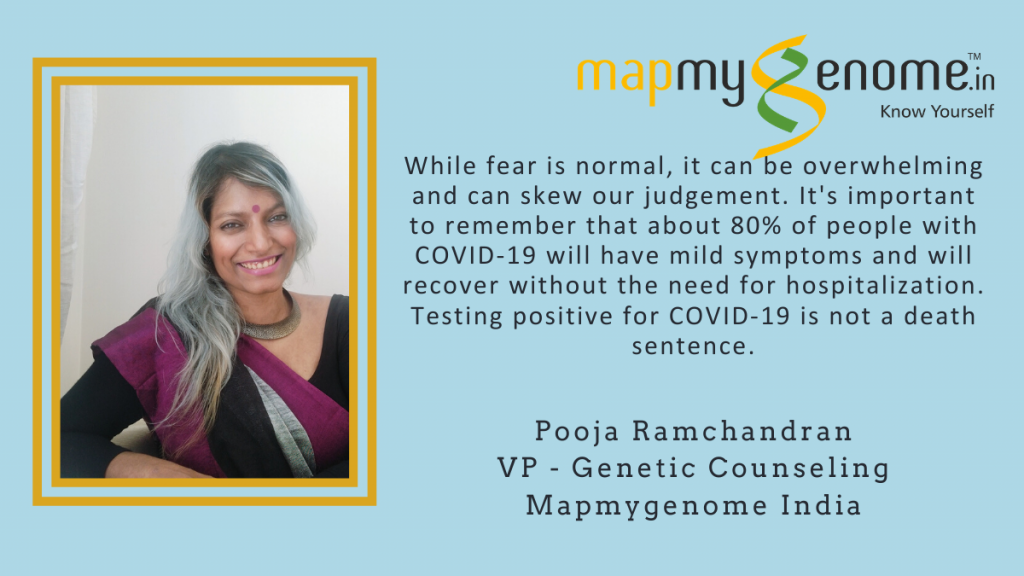POSITIVELY SPEAKING
Jul 08, 2020
4773 Views
Imagine this: You were unwell, with a slight temperature and a dry cough and some weakness. You went to the doctor to get yourself checked (of course, fearing COVID-19 the whole time), they ordered a test, you continue to fear COVID-19, and the test came back positive. And while you believe in being positive and all of that, this is not the positive you were imagining you’d be. What should you make of testing positive for SARS-CoV-2? Keep reading.
Your doctor likely ordered testing for COVID-19 because you met the current criteria for testing or you wanted to get tested because you were, well, enthusiastic. The laboratory tested your specimen for genetic material from the new coronavirus (doesn’t seem new anymore, no?), SARS-CoV-2. If you had symptoms and your test report read ‘positive’, it means genetic material from the coronavirus (SARS-CoV-2) was found in your specimen and you have confirmed coronavirus disease aka COVID-19. A good analogy is having signs of TB, doing a test that came back positive, and then receiving the appropriate medical care for TB. Quarantine yourself to keep others safe.
If you did not have symptoms and your test report read ‘positive’, it means genetic material from the coronavirus (SARS-CoV-2) was found in your specimen and you are a confirmed asymptomatic carrier of coronavirus disease. This is a lot like being overall healthy, needing to do a TB test for work/visa, and then finding out that you have the ‘germ’, but your body hasn’t been showing symptoms because it’s been dealing with the pathogen and keeping you from falling ‘ill’ and showing symptoms. You are now an asymptomatic carrier of the novel coronavirus, and you have the power to spread the infection or prevent transmission; that chance, according to the World Health Organization, is 40%! And you know the thing about great power — it comes with a superlative amount of responsibility. And the recommended, responsible, thing to do is to quarantine yourself to keep others safe while you focus on your recovery.
Also Read: 10 Ways to Defend Yourself Against Covid-19 (Coronavirus)

At this point, it’s probably important to clarify that it is not possible for a laboratory test to predict severity of illness because the result is only reported as positive (detected) or negative (not detected) for the coronavirus (SARS-CoV-2). It is, however, possible for your doctor to use your test report to make an accurate assessment of COVID-19 (if relevant to you) and other risk factors (underlying medical conditions such as diabetes, heart disease, lung disease, immunosuppression, age, etc.) that may put you at increased risk for a more severe illness. A good thing to keep in mind is that if you were asked to self-quarantine, you likely have a mild illness that your doctor assessed and that can be managed at home. However, it is important to know that — for some people with COVID-19 asked to self-quarantine — symptoms may not always stay stable. In case symptoms become more severe during self-quarantine at home, admission to hospital may be recommended in order to better manage symptoms. So if you do test positive, while 80% of individuals with COVID-19 will recover on their own, it is important to speak with your doctor about what symptoms to look out for so that you can proactively monitor your symptoms throughout your illness and set yourself up for success on your road to recovery.
Once you’ve recovered, you want to continue to follow recommendations for minimizing contact with the coronavirus. It’s the same recommendations you’re now only too familiar with – washing hands, social distancing, wearing a mask, and stepping out only when necessary. While it is true that, generally speaking, having antibodies (from infection) to a pathogen can confer immunity to that particular pathogen, it is currently not known if infection by SARS-CoV-2 provides protection against getting reinfected with the virus, or how much protection the antibodies may provide, or how long such protection may last. So, continue to stay safe even after you’ve recovered, and pat yourself on the back for being part of the now growing number of individuals who have successfully fought off COVID-19. You survived; it’s time to thrive.
